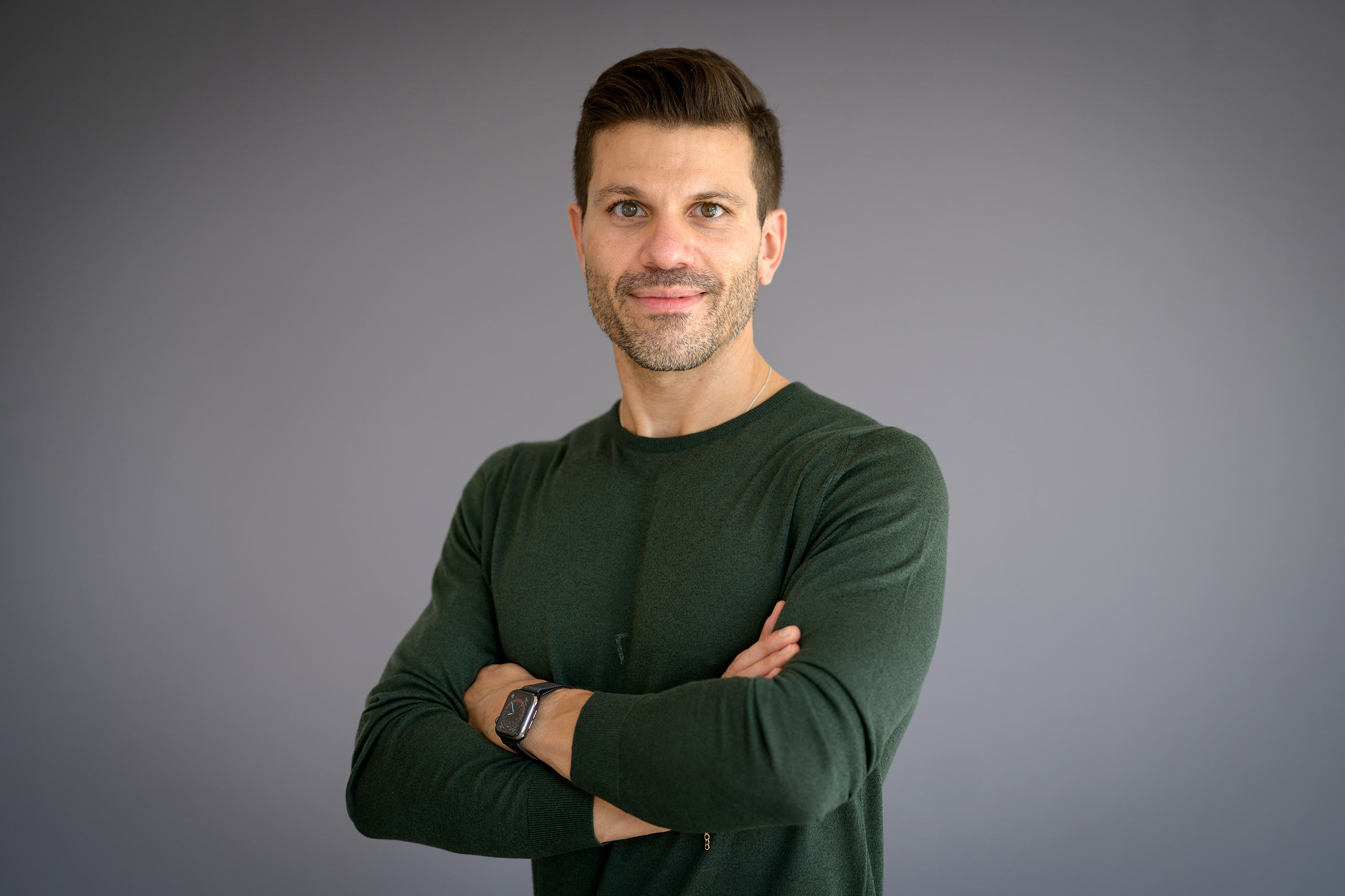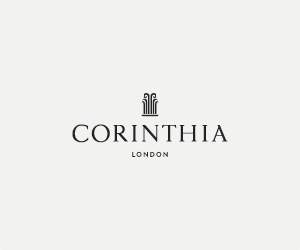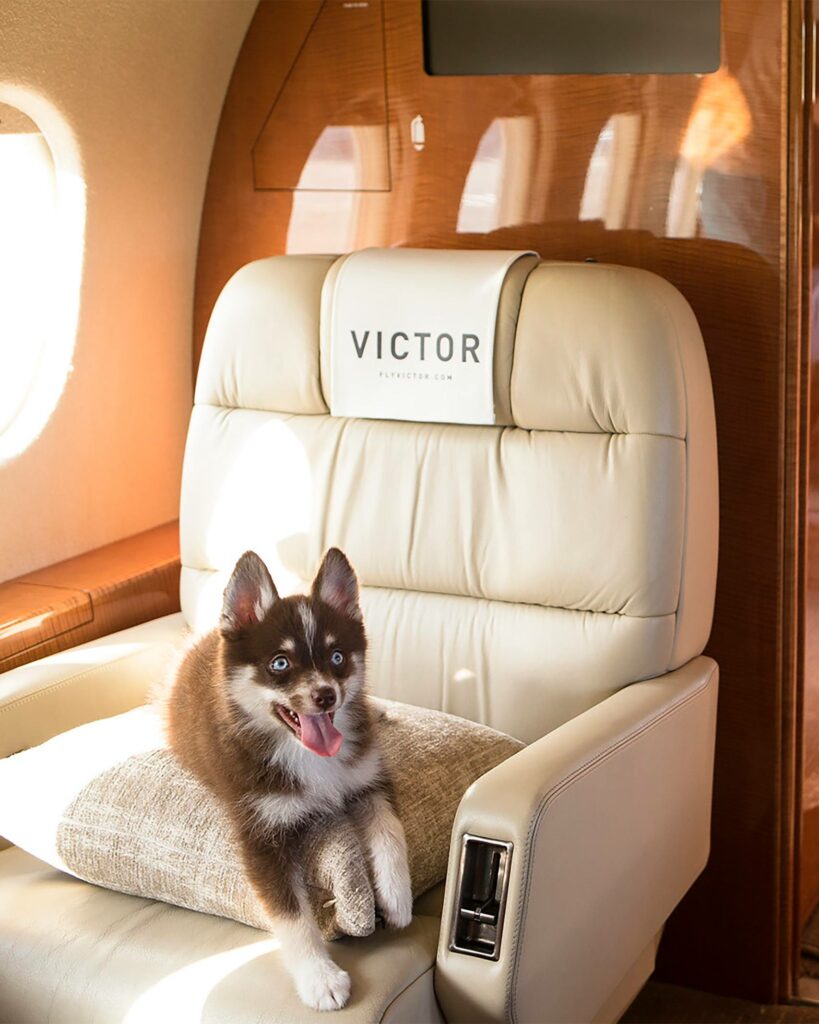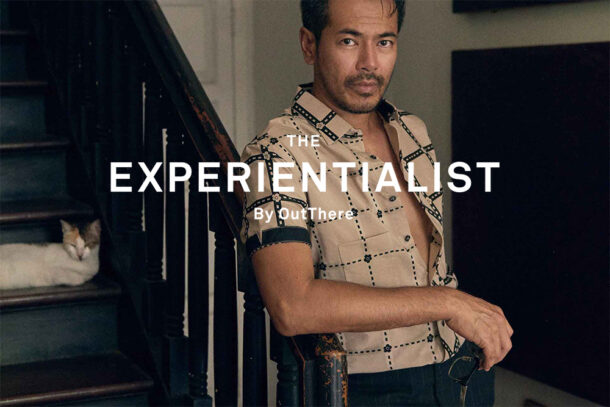Davide Paladino was born in the early 1980s in Glarus, Switzerland. Though a great – and even aspirational – place to live, his Alpine home within a small community did not come without challenges for someone who’s part of the LGBTQ+ community. In his role as Vice President of Sales at private aviation brand Victor, Davide has quite literally risen above the troubles of earlier years.
Switzerland is the land of mesmerising mountains, lush chocolate and cheese, and that master of playful melody we’d hate to do without: the cuckoo clock. It’s an ideal place for a happy, fulfilling childhood and adolescence, you’d think. Perhaps it’s so for the majority of citizens, but not if you were (openly) gay, in what amounted to a small, conservative village in the countryside in the 1980s, an era when ignorance, prejudice and fear concerning the LGBTQ+ community prevailed. This was no doubt partly because of the way ‘non-conventional’ lifestyles were vilified by the mass media and the church, and also due to the spectre of the AIDS epidemic.
Yet, after he came to terms with his sexuality, Davide Paladino left all the distrust, paranoia and bigotry in his past. Nothing was going to stop him from becoming a high-flyer (pun intended) in his chosen career: reason enough to catch up with the genial, charismatic fortysomething to hear about his early life, thoughts about diversity and inclusion, and why he’s determined to ‘give back’ and help make the luxury travel industry even more welcoming.
Can you tell us about what Victor does and what makes the company unique?
Victor is an on-demand private jet charter company connecting users with private jet operators for flights. We offer a fully transparent, subscription-free, customer-focused service that provides our clients with unparalleled access to the world of private aviation.
What is the company’s ethos and what is it doing in relation to sustainability?
Our mission is ‘A better way to fly’ and climate action is not just an ESG (Environmental, Social and Corporate Governance) tagline, but an integral part of our business strategy. We encourage our customers to choose the most fuel-efficient aircraft for their requirements as we provide accurate fuel burn estimates on every quote.
It is our understanding that the future is not in fossil fuels and that we are in a transition period to a low-carbon economy. This is why we have partnered with Neste, the world’s leading producer of Sustainable Aviation Fuel (SAF) last year, to enable our members to credibly chart a path to Net Zero. Our customers can now reduce their carbon emissions on every booking by up to 80%, by replacing fossil fuel with SAF.
Tell us about your childhood and teenage years. What was it like growing up as a gay person in rural Switzerland?
Given how far we have progressed as a society, I feel that it’s hard for some people to envisage the difficulties that some kids in my generation encountered growing up – especially considering that even the legal system didn’t protect the gay community.
I grew up in a small village in the countryside, with a conservative-minded population that rejected everything that didn’t follow the norm (and certainly had a negative attitude towards individuals attracted to the same sex). Also, my parents were very young when they had me and they made it their priority to earn a living. Seeing as they were both hard-working, I spent most of the day in a nursery that was run by Italian catholic nuns. As you might imagine, all these things combined made for an environment that wasn’t particularly inclusive, and this certainly amplified the difficulties of embracing my identity in my childhood. As a child, I was subjected to bullying and isolation and began grappling with my inner battles at an early age because I always felt like an outlier in a community where support was scarce.
In my early teens, I remember watching my friends experience their first ‘butterflies’ with girls, and watching this unfold made me feel both confused and pressured to feel the same way.
The societal pressure to conform, especially during adolescence, compounded my struggles, creating a dissonance that eventually affected my personal relationships. The AIDS epidemic further fuelled the fire, with fear-mongering prevailing until educational initiatives and prevention measures began to reshape the narrative in my early twenties.
How difficult was it for you to accept your sexuality, and how old were you when you finally came to terms with it?
Acceptance of my sexuality was a journey marked by internal conflict and attempts to conform to societal expectations. As a teenager, I remember joining an online gay community in which you were able to communicate with other members via the web and everything was completely anonymous. In a way, the advent of the internet offered me a lifeline and gave me a place to seek refuge and externalise my thoughts.
Although unintended on my part, it wasn’t until the age of 17 that I summoned the courage to come out to my parents, and this pivotal moment set in motion my relocation to Zurich.
Did you ‘come out’ as a gay man, and were there any negative consequences as a result of this decision?
It’s important to understand that at the time there was a huge misconception about who gay people were. There was this idea that gay people all wore high heels and feathered boas, which was largely due to misrepresentation in the media.
I came home one day to my father telling me that he had received an anonymous phone call at work from someone telling him that he had a gay son. When he told me this, I decided that there was no point trying to hide anymore, and so I came clean.
My relatively young parents (who are only around 20 years older than me) initially struggled to comprehend my sexuality, and it was an unexpected ally, my grandfather, who played a crucial role in dispelling their prejudices. I only learned this myself around five years ago.
The introduction of my ex-partner to my family facilitated a gradual restoration of familial relationships. Once they met my partner, they could see that we were just like any other normal couple, and over time, they came to accept my decisions. I’m pleased to say that there is no problem whatsoever between me and my parents now, and that they are supportive of me and my sexuality in any way they can be.
When you got your first job(s) in banking, did you feel like you were in a metaphorical straight-jacket because of your sexuality?
Yes. I wouldn’t even have considered speaking openly about my sexuality when I was doing my apprenticeship at a regional bank – at the time it would have been a sackable offence. Bear in mind the conservatism prevailing in the village where I was raised; I had to hide my personality from my colleagues and change the way that I was. At times I would have to act as if I was attracted to the female sex just so that I could fit into the conversation.
Later, when I moved to Zurich, I found some comfort in being myself and didn’t feel the same pressure as back home. The city embraced a more open-minded attitude towards the queer community. Working in the finance sector, however, still gave me little joy as the industry kept an old-fashioned attitude, at least towards the outside, to preserve the highly regarded traditional values of Swiss banking. For a period, I was also part-timing in what was known in the city as one of the only gay cafés. In hindsight, that was probably a telltale sign that I was seeking environments where I could escape conformity and just be myself. It was at this café that I met one of my closest friends who convinced me to join the airline industry.
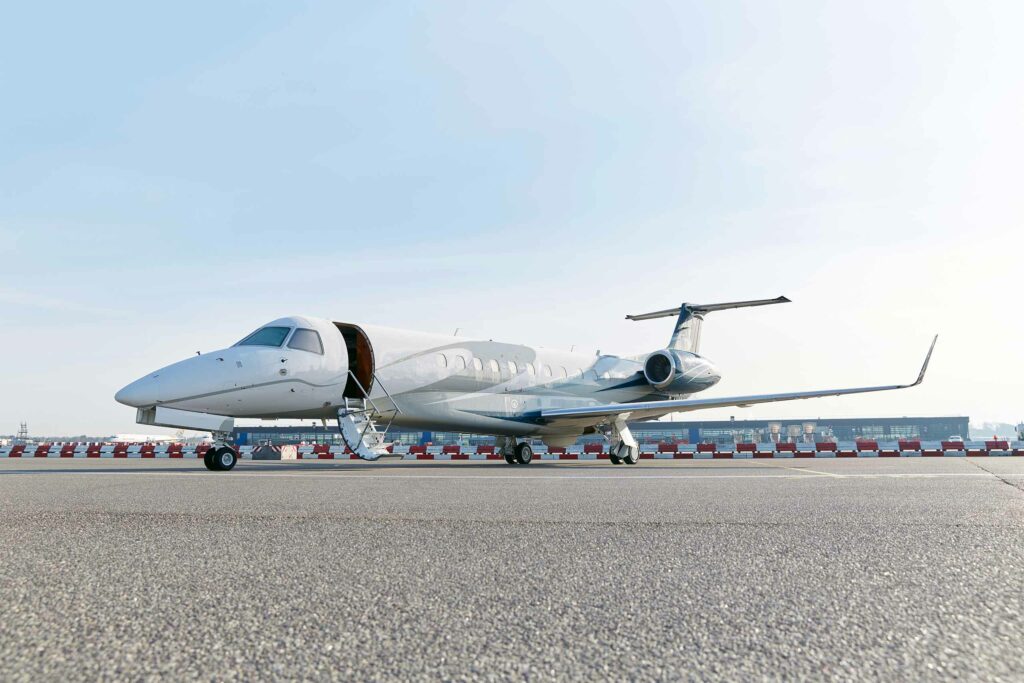
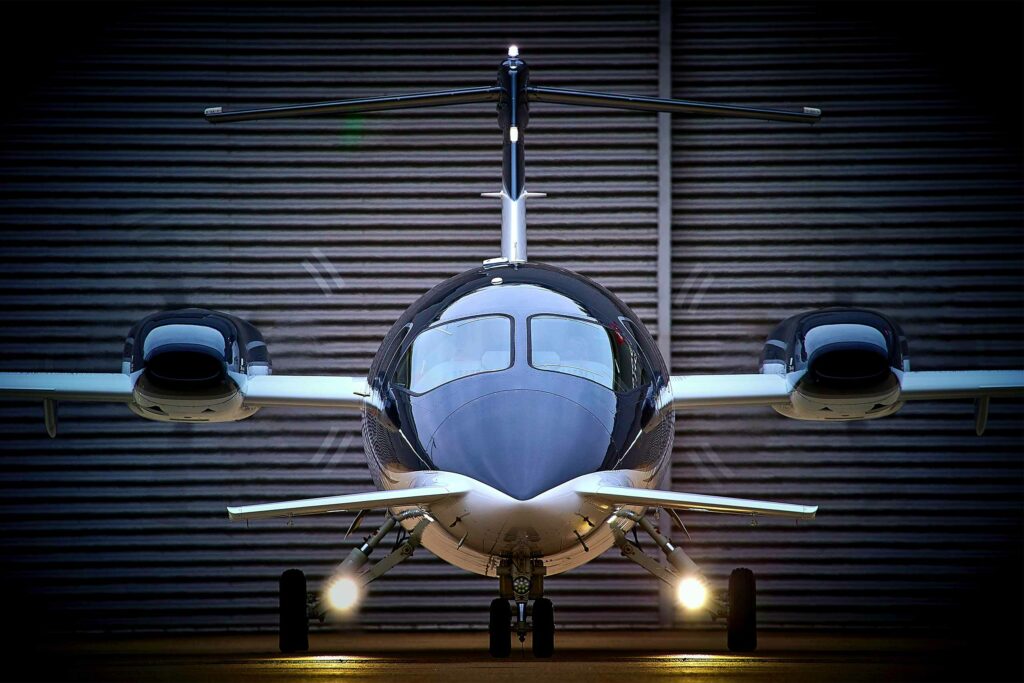
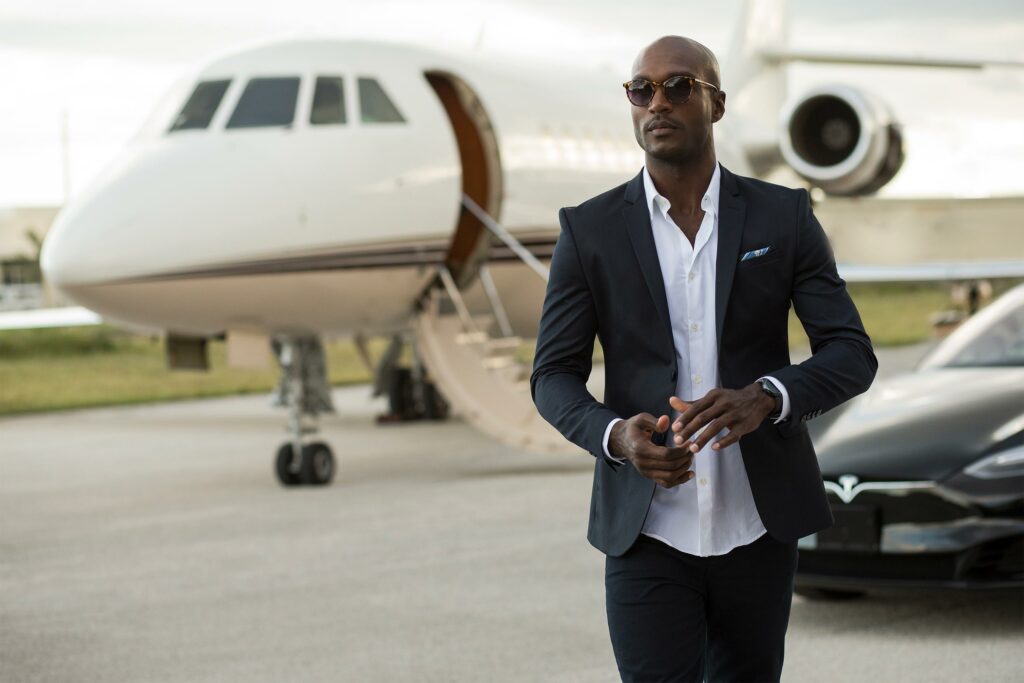
What changed when you switched to a career in the aviation industry?
The transition to the aviation industry marked a profound shift in my professional landscape, bringing with it a liberating sense of self-expression. Surrounded by open-minded individuals in cosmopolitan settings, I experienced a newfound ease in embracing my identity. The industry’s inherent nature allowed me to explore the world, find a sense of belonging, and authentically live and breathe beyond the constraints of traditional environments.
All of a sudden, I was interacting with well-travelled and cultured minds. I remember when I went to New York, Los Angeles, São Paolo – cities with huge gay communities – and it was such an eye-opener.
I would find myself in the centre of these communities and realise that I was able to be my authentic self in a way that I couldn’t be with some of my friends and family back home. At the crux of it, I think that is why the airline industry attracts so many members of the LGBTQ+ community: it’s an opportunity to break free from a traditional environment, explore the world, and find places where you can feel a sense of belonging.
Also, I must say that back then, being a flight attendant didn’t even feel like a job. It was like a hobby sometimes. I would travel on big long-haul trips that would allow me to be in a new city for almost a week. I was living my best life; that’s for sure.
How important do you feel diversity and inclusion are in the workplace?
I’ve worked for companies that claim to be fully open and say all the right things about diversity and inclusion, but that doesn’t necessarily mean you can be yourself there. That comes with culture.
Diversity and inclusion initiatives help people who work in these spaces to become creative: you want people to feel like they are thriving, not just surviving. Instilling a positive culture in an open mind will give that person the drive and motivation to work hard.
But diversity and inclusion transcend being mere corporate buzzwords – they are, in my opinion, absolutely vital to a thriving workplace. It’s not just about companies making claims and saying all the right things, but fostering a genuinely inclusive culture that catalyses creativity and motivation.
You also can’t be prejudiced or narrow-minded in any way if you want any hope of attracting the next generation of talented workers. At Victor, our robust team stands as a testament to our commitment to fostering genuine diversity and inclusion.
Why did you get involved with the Mulwade Foundation, and what does the charity do?
My involvement with the Mulwade Foundation is a personal commitment to giving back to a community that played a pivotal role in helping me overcome my own mental health struggles. The Mulwade Foundation was founded by a close friend of mine who was recklessly infected with HIV. The charity is dedicated to supporting those facing similar challenges, offering them support and guidance, while also emphasizing the importance of community, understanding, and empowerment through education.
If there was one change you’d like to see in the luxury travel industry, what would it be?
To keep educating, informing and opening the minds of people who aren’t quite up to speed yet – whether that’s just about the gay community in general, or about HIV, or anything diversity and inclusion-related. To continue breaking down barriers and transcending preconceived notions, the industry should strive to reach places still behind in progress.
Even what we’re doing now is potentially a catalyst. It’s one of the first times a private jet broker, or someone in my particular field, is talking openly about their sexuality and struggles to the media. So this needs to continue and it needs to seep into other industries and other countries that aren’t quite as progressive.
To give you a reference to how far we have come, I recently had a conversation with one of my customers about my personal life and my sexuality came up. It was very heartening to find that the topic of conversation wasn’t awkward or tense in any way at all. For me, that was a notable step outside my comfort zone, but it proved to me that this is how it should be: a natural conversation between both sides that is inclusive for all.
Photography courtesy of Davide Paladino and Victor


